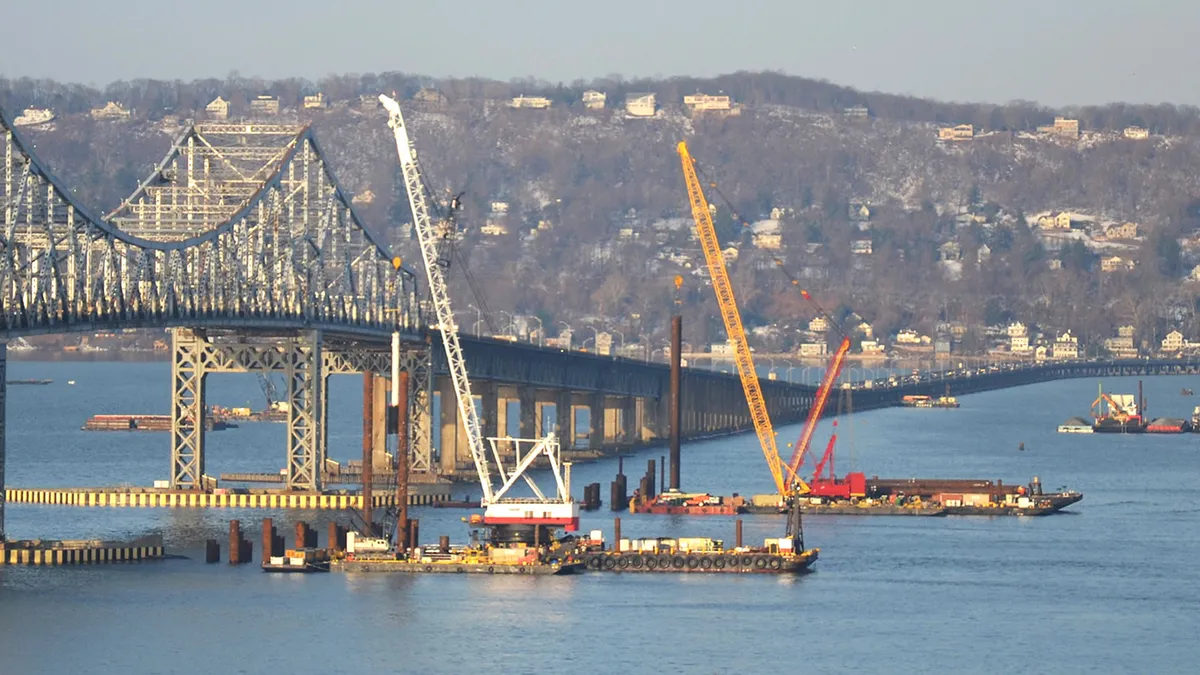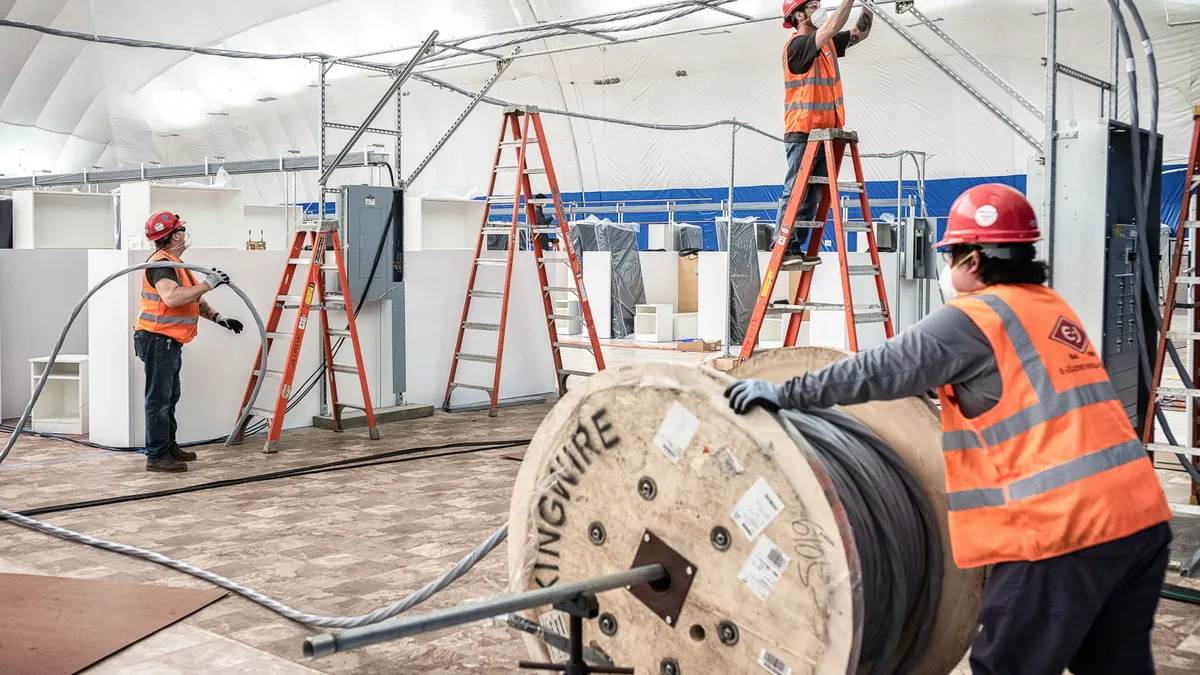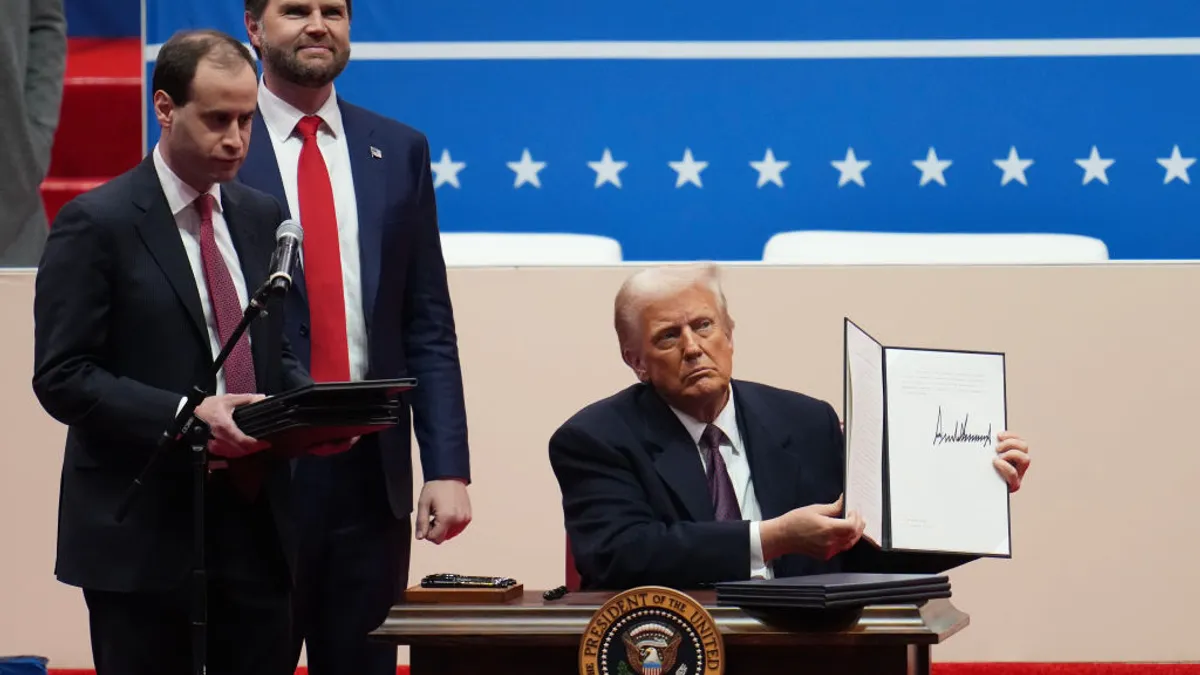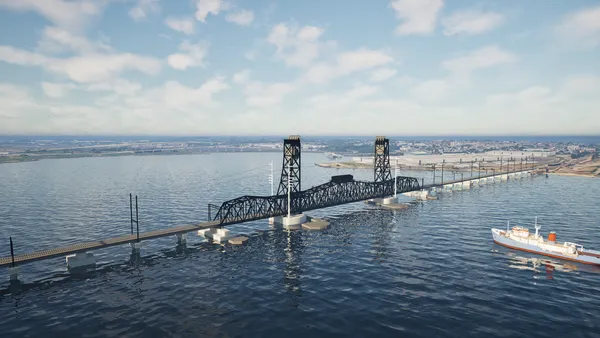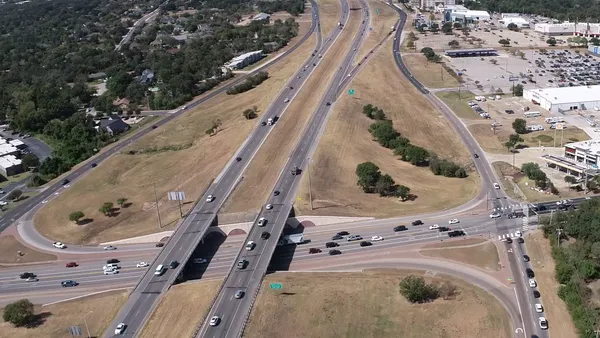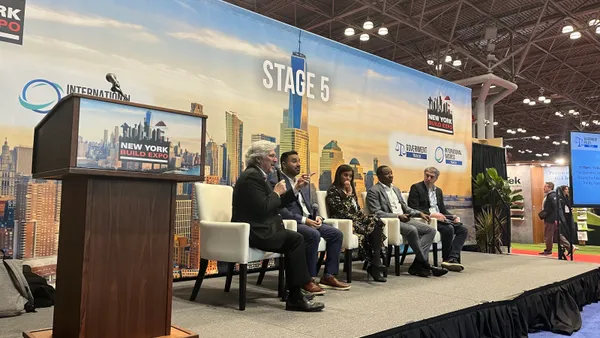Dive Brief:
- New York Gov. Andrew Cuomo's administration, according to a report from The New York Times, allegedly offered incentives to the contractor working on the Mario M. Cuomo Bridge, which replaces the Tappan Zee Bridge, to open the eastern span to traffic — despite safety concerns. Critics of the governor claimed he and his administration wanted the bridge fully open before the Sept. 13 Democratic primary in order to win political points with voters. The first span opened last October.
- The New York Times obtained a July letter from New York Thruway Authority official Jamey Barbas in which she directed the construction team to open the new span by Aug. 24 — an extension from its originally scheduled opening date of Aug. 15 due to weather and other delays — but the letter also advised Tappan Zee Constructors that the agency would "not hold T.Z.C. responsible for any traffic incidents(s) or damage to the work that results from shifting traffic on the bridge while all elements are not fully complete as permitted by this letter." According to The Times, the authority also offered to pay for any "premium costs." Engineers reportedly were concerned that a piece of the old bridge, which had become unstable, would fall onto the span, which opened Sept. 11.
- Barbas told The Times that her offer to the contractor was a standard one and that she sent the letter without consulting the governor's office. Cuomo called allegations that he pushed for a bridge opening to happen in advance of the primary "nonsensical."
Dive Insight:
Contractors on major projects like the Cuomo Bridge can get caught between opposing political forces. These initiatives are often perceived as a sign of the ability — or inability — of elected officials to deliver major economic benefits to their constituents, so those in office are invested heavily in ensuring major successes while challengers tend to emphasize the missteps and errors in order to gain a political leg up.
And sometimes politics can threaten the viability of the projects themselves.
In Nevada, Republican gubernatorial challenger Dan Schwartz, who is the current state treasurer, has been a longtime critic of state-backed funding of the future Las Vegas Raiders' stadium. During his primary campaign, he said he would hold up funding for infrastructure improvements around the stadium unless the team returned the $750 million the state committed to the project. Schwartz lost the primary in June.
Disagreements along political lines also threatened to kill the $2 billion Minneapolis-area Southwest Light Rail Transit project. State Republicans voted not to fund the project, but local agencies backing the 14-mile line were able to come up with the necessary money on their own. Republicans were so incensed by what they perceived as a Democrat-aided end-run around their decision that they planned to petition the Federal Transit Administration to divert an anticipated $1 billion rail grant from the Southwest project to other state infrastructure initiatives. The FTA advised lawmakers that the grant could only be used for the Southwest project.


